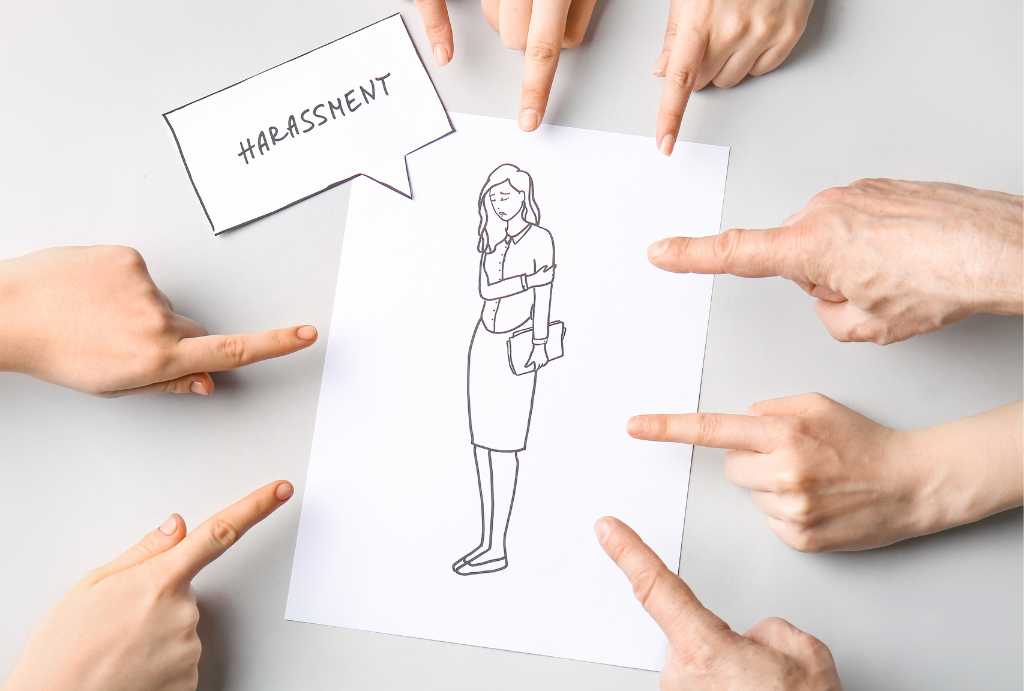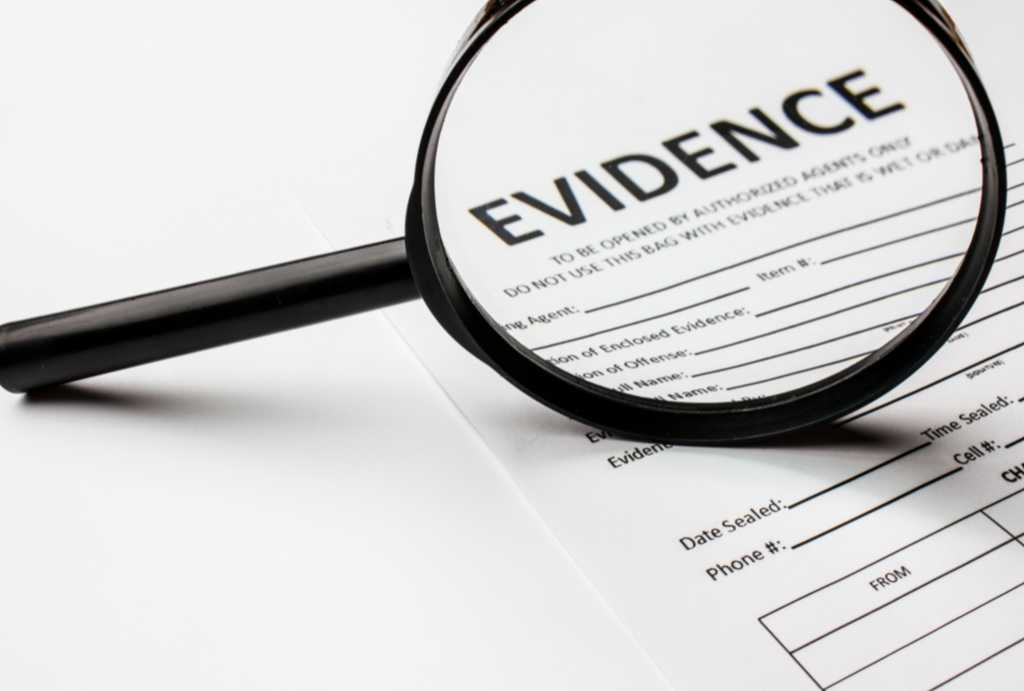 Today almost every company is aware about a POSH policy in India. Sexual harassment in the workplace is a serious issue that needs to be dealt with in a sensitive but strict way. That is why creating a safe and healthy work environment for every employee is a responsibility that falls on the company.
Today almost every company is aware about a POSH policy in India. Sexual harassment in the workplace is a serious issue that needs to be dealt with in a sensitive but strict way. That is why creating a safe and healthy work environment for every employee is a responsibility that falls on the company.
Table of Content
- What is Sexual Harassment At Workplace?
- What is the Prevention of Sexual Harassment (POSH) Act?
- Importance of Having a Workplace POSH Policy in India
- POSH Policy Scope and Applicability
- Internal Complaints Committee
- How to Conduct an Investigation According to the POSH Policy in India?
- FAQs
- Conclusion
- POSH POLICY FREE TEMPLATE DOWNLOAD
What is Sexual Harassment At Workplace?
Any act, situation, conversation or behavior either physical or verbal; that is sexual in nature can be termed as sexual harassment. In certain situations, a derogatory comment that might damage someone’s reputation but is not sexual in nature and directly said to a person is also considered as sexual harassment. Such behavior often is mentally harmful for an employee and can create an unsafe and disturbing environment to work in. Some examples of sexual harassment at work include:
- Unwarranted and overly physical actions or interactions
- Requests or demands for sexual favors
- Making vulgar jokes or comments with sexual references
- Showing, discussing or sending pornography
- Jokes or remarks regarding intimate body parts or sex.
- Make use of gendered or sexist slurs.
- Exchanges messages about sex or intimate body parts via letters, notes, emails, text messages, or social media posts.
- Inadvertently or intentionally striking someone with a brush that is uncomfortable
- Staring or uncomfortable glances
- Following them around or excessive contact post working hours
- Inappropriate and suggestive caressing, massaging, kissing, or touching someone’s body or attire
- Asking for sexual favors or dates repeatedly when you’re turned down
- Threatening to treat someone badly at work or harm someone’s career
What is the Prevention of Sexual Harassment (POSH) Act?
The Prevention of Sexual Harassment (POSH) Act, formerly known as the Sexual Harassment of Women at Workplace Act, was created on December 9, 2013, according to the 1997 Vishaka Guidelines of the Supreme Court. The foundation for tackling and preventing sexual harassment in Indian workplaces is laid out by these principles.
As mentioned above, it is the sole responsibility of the company and employers to ensure compliance of a POSH policy in India. Establishing an Internal Complaints Committee (ICC) in each office with more than ten workers is must under this Act.
Within three months of the any harassment incident, any victim can file a complaint with the ICC, and the committee has 90 days to finish its inquiry. In India, there are consequences like warnings, penalties and even termination for breaking the POSH rules, including fines of up to ₹50,000.
Importance of Having a Workplace POSH Policy In India
POSH Policy Scope and Applicability
Scope
- Safety for All Women and Employees: The POSH Act guarantees protection against workplace harassment for women of all ages and job categories, including contractual, temporary, permanent, and domestic workers.
- Covers All Industries: The Act is inclusive of all work contexts because it applies to both organized (factories, corporate offices) and unorganized (household work, small companies).
- Wide Definition of Workplace: This term covers more than just physical offices. For the sake of safety in all work-related contexts, it covers any location visited by the employee while they are employed, including employer-provided transportation, business travel, and social events linked to their job.
Applicability
- All Women Employees: The Policy provides protection to women employed in a range of roles, including domestic work, and is applicable to all women, irrespective of their employment type (permanent, temporary, contractual, or unorganized).
- Businesses with 10 or More Employees: In order to address allegations of harassment, any company with ten or more employees is required to set up an Internal Complaints Committee (ICC).
- Small Businesses: The government-established Local Complaints Committee (LCC) addresses complaints from companies with less than ten employees, guaranteeing protection for all workplaces, regardless of size.
Internal Complaints Committee (ICC)
The Internal Complaints Committee (ICC) is a crucial element mandated by the POSH Act to address sexual harassment in workplaces with more than 10 employees. Its primary purpose is to provide a safe platform for employees, particularly women, to report harassment. The ICC is responsible for receiving complaints, conducting impartial investigations, and recommending appropriate actions to ensure justice is served. The committee ensures that the process is fair, confidential, and in line with the guidelines provided by the law, ensuring that employees feel secure in reporting any misconduct.
POSH Committee Format [Internal Complaints Committee]
The ICC is structured to make sure there is fairness and inclusivity within the committee and hence, comprises of a diverse set of members:
- Chairperson: The committee must be chaired by a senior female employee of the organization to maintain a gender-sensitive approach.
- Internal Members: At least two other employees, preferably those committed to the cause of women or with social work or legal expertise, are included to bring different perspectives.
- External Member: An external expert from an NGO or someone familiar with sexual harassment issues is added to the committee to ensure unbiased opinions and an outside perspective, ensuring that the proceedings remain neutral and fair.
Roles and Responsibilities of the Internal Complaints Committee
The ICC’s key responsibilities include:
- Receiving Complaints: The ICC is tasked with receiving complaints from aggrieved employees and ensuring the process is safe and confidential.
- Conducting Investigations: It carries out a thorough inquiry, gathering evidence, interviewing both the complainant and the accused, and reviewing all relevant facts impartially.
- Recommending Actions: Based on the findings, the ICC recommends appropriate actions such as warnings, suspension, or even termination. Throughout this process, maintaining confidentiality is crucial to protect the privacy and dignity of all parties involved. The ICC is also responsible for ensuring that their actions align with both the POSH Act and the company’s policies.
How To Conduct an Investigation According to the POSH Policy In India?
1. Confirm Receipt of Complaint and Provide Complaint Form
 When a complaint is received, the ICC accepts and acknowledges the employee’s complaint in writing using the Acknowledging Receipt of POSH Complaint document. This document is basically going to reassure the complainant that their voice was heard and respected, what would the further steps in this investigation look like, who should be contacted from the ICC for any further queries etc. After this the complaining employee should go ahead an fill a POSH Complaint Form to jot down details from the incident.
When a complaint is received, the ICC accepts and acknowledges the employee’s complaint in writing using the Acknowledging Receipt of POSH Complaint document. This document is basically going to reassure the complainant that their voice was heard and respected, what would the further steps in this investigation look like, who should be contacted from the ICC for any further queries etc. After this the complaining employee should go ahead an fill a POSH Complaint Form to jot down details from the incident.
2. Initial Review
 The ICC then conducts a preliminary review of the complaint using the Grievance Redressal Request Form to check whether this particular incident can and should be reprimanded according to the POSH Act. If the complaint does qualify, the case will proceed to an inquiry by the ICC. If the complainant needs any clarity on the process, they can refer to the Instructions to File a Complaint document.
The ICC then conducts a preliminary review of the complaint using the Grievance Redressal Request Form to check whether this particular incident can and should be reprimanded according to the POSH Act. If the complaint does qualify, the case will proceed to an inquiry by the ICC. If the complainant needs any clarity on the process, they can refer to the Instructions to File a Complaint document.
3. Form the Investigation Team
 In order to guarantee there are no conflicts of interest, the ICC chooses a team from among its members. To guarantee that all information pertaining to the case stays confidential, each member of the investigative team signs a Confidentiality Agreement for ICC. All ICC members who are involved get a Notice of Meeting, along with a Meeting Agenda that details the duties and next steps.
In order to guarantee there are no conflicts of interest, the ICC chooses a team from among its members. To guarantee that all information pertaining to the case stays confidential, each member of the investigative team signs a Confidentiality Agreement for ICC. All ICC members who are involved get a Notice of Meeting, along with a Meeting Agenda that details the duties and next steps.
4. Plan the Investigation
 Next an investigative plan that includes schedules for interviews, gathering evidence, and timelines is drafted by the ICC. A meeting agenda is used to make sure that the topic of the meeting remains focused and well organized. Both the parties, the complainant and the accused are then informed about the investigation timeline so that they are aware and receive timely updates.
Next an investigative plan that includes schedules for interviews, gathering evidence, and timelines is drafted by the ICC. A meeting agenda is used to make sure that the topic of the meeting remains focused and well organized. Both the parties, the complainant and the accused are then informed about the investigation timeline so that they are aware and receive timely updates.
5. Collect Relevant Evidence
 The ICC collects evidence, such as emails, messages, and any relevant documents, which are recorded in the Investigation Report. All documents collected during the investigation, including the complainant’s statements, respondent’s responses, and witness interviews, are documented here. During this phase, formal letters are issued to witnesses, inviting them to participate in the inquiry, ensuring that confidentiality is maintained.
The ICC collects evidence, such as emails, messages, and any relevant documents, which are recorded in the Investigation Report. All documents collected during the investigation, including the complainant’s statements, respondent’s responses, and witness interviews, are documented here. During this phase, formal letters are issued to witnesses, inviting them to participate in the inquiry, ensuring that confidentiality is maintained.
6. Interview the Parties
 The ICC schedules confidential interviews with the complainant, respondent, and witnesses. These interviews are documented in the Investigation Report and the Minutes of Meeting Document to ensure accurate recording of all statements. Notice of Meetings are sent to all parties, and interviews are scheduled based on the investigation plan. The Employee Training Attendance Sheet may be referenced to verify any training or prior sensitization sessions attended by the involved parties.
The ICC schedules confidential interviews with the complainant, respondent, and witnesses. These interviews are documented in the Investigation Report and the Minutes of Meeting Document to ensure accurate recording of all statements. Notice of Meetings are sent to all parties, and interviews are scheduled based on the investigation plan. The Employee Training Attendance Sheet may be referenced to verify any training or prior sensitization sessions attended by the involved parties.
7. Analyze the Information
 Following the collection of all statements, interviews and evidence, the ICC reviews the data to verify that it is reliable and consistent. The discussions and conclusions reached by the ICC members during their time together are recorded in the Minutes of Meeting. The Investigation Report provides an overview of the findings of the investigation.
Following the collection of all statements, interviews and evidence, the ICC reviews the data to verify that it is reliable and consistent. The discussions and conclusions reached by the ICC members during their time together are recorded in the Minutes of Meeting. The Investigation Report provides an overview of the findings of the investigation.
8. ICC Deliberation
All ICC members participate in a formal meeting to examine the findings, and the discussions are documented in the meeting minutes. Based on the testimony and facts gathered, the ICC members try to come to an agreement for the choice of action against the accused. The Resolution and Closure Report contains the final conclusion, which has been prepared for submission.
9. Write the Final Report
 The facts, conclusions, and complete investigative process are summarized in the Final investigative Report that the ICC prepares. Together with the Resolution and Closure Report, which includes the ICC’s ultimate ruling and action recommendations, this report is delivered to the employer. Confidentiality is guaranteed by providing written updates on the result of this investigation to both the complainant and respondent.
The facts, conclusions, and complete investigative process are summarized in the Final investigative Report that the ICC prepares. Together with the Resolution and Closure Report, which includes the ICC’s ultimate ruling and action recommendations, this report is delivered to the employer. Confidentiality is guaranteed by providing written updates on the result of this investigation to both the complainant and respondent.
10. Recommend Actions
 On the basis of the investigation’s conclusions, the ICC suggests suitable measures. Depending on the seriousness of the matter and the choice of action taken against them, the accused could receive letters such as a warning, suspension, or termination if the allegation is found to be true. For complete POSH Act compliance, some suggestions are included in the Disciplinary Action Report that is provided to the employer.
On the basis of the investigation’s conclusions, the ICC suggests suitable measures. Depending on the seriousness of the matter and the choice of action taken against them, the accused could receive letters such as a warning, suspension, or termination if the allegation is found to be true. For complete POSH Act compliance, some suggestions are included in the Disciplinary Action Report that is provided to the employer.
11. Follow Up and Keep Records
 At last, to make sure the workplace stays safe and equal for the complainant, the ICC follows up with the individual who complained once the suggested changes are put into practice. The Resolution and Closure Report provides detailed documentation of this procedure. Every document related to the case, such as the complaint form, the results of the investigation, and the activities done during investigation, is kept safe for future use. For the sake of legal compliance and accountability, the ICC also provides information on the complaint and its resolution in the Annual Report.
At last, to make sure the workplace stays safe and equal for the complainant, the ICC follows up with the individual who complained once the suggested changes are put into practice. The Resolution and Closure Report provides detailed documentation of this procedure. Every document related to the case, such as the complaint form, the results of the investigation, and the activities done during investigation, is kept safe for future use. For the sake of legal compliance and accountability, the ICC also provides information on the complaint and its resolution in the Annual Report.
FAQs
What are the two main types of workplace harassment?
Quid pro quo, or when job advantages are connected to sexual favors, and hostile work environment, or when inappropriate behavior creates an uncomfortable work atmosphere, are the two primary types of workplace harassment.
What is preventing workplace harassment?
Establishing explicit anti-harassment policies, holding frequent training sessions, and offering a secure, private method for reporting instances are all necessary to prevent workplace harassment.
Is the POSH Act applicable to small businesses?
Yes, even small enterprises are covered by the POSH Act. A company must file harassment complaints with the Local Complaints Committee (LCC) if it employs fewer than ten people to follow a POSH policy in India.
What penalties exist for non-compliance with the POSH Act?
The POSH Act imposes fines of up to ₹50,000 for noncompliance, and repeated infractions could result in the business license being canceled.
Can the Internal Complaints Committee be outsourced?
According to the POSH policy in India , though small companies employing less than ten people can rely on the government-established Local Complaints Committee (LCC) to handle issues, the ICC cannot be fully outsourced.
What is Rule 10 of the POSH Act?
Conciliation is covered by Rule 10 of the POSH Act, which permits the complainant and respondent to reach a mutually agreeable resolution prior to the start of the investigation, provided that no monetary compensation is involved.
Conclusion
In conclusion, a well-organized procedure and the appropriate use of crucial documents throughout the investigation for a POSH policy in India are necessary for effectively resolving workplace harassment. A professionally written set of POSH policy documents can help you preserve freedom and equality while guaranteeing legal compliance and promoting a safer and more respectful work environment for all employees.




